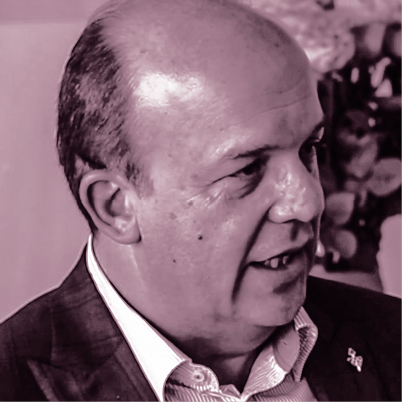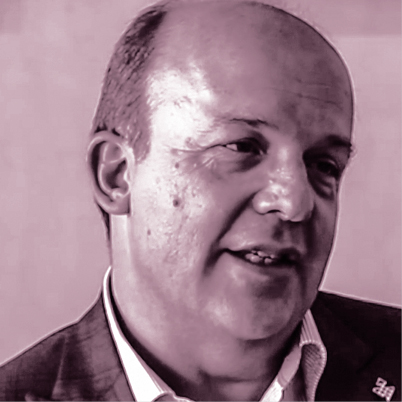Then you explain why.
Precisely. At the beginning, firms neither implemented, nor explained. The only change was in the boards of companies operating in the finance sector. This sector is more strictly regulated, so financial companies have adopted the recommended proportion of independent executives. Because we’re so different from Anglo-Saxon countries on both institutional and cultural counts, I don’t expect the situation to change profoundly in the medium term in the absence of legal sanctions. As we don’t have a culture of individualism, and we aren’t inclined to professionalism, management tends to operate on the basis of trust.
I have the same view of some of the management trends debated in the media and discussed in textbooks and our classrooms, such as participatory management, reduced hierarchy in companies, or flatter organizational structures… International companies in Turkey are probably trying to implement them in Turkey, and Turkish firms intent on following Western management techniques are probably doing the same. But implementing participatory management isn’t easy for a typical Turkish company. Our culture isn’t very open to the approach. The power distance is considerable here. In cultures like ours, decisions are made centrally without the participation of individuals, who can be hesitant to criticize their superiors or offer negative feedback. Another thing is the low tolerance for uncertainty in Turkish culture. We deal with it this way: “We know who rules here; let’s do what he or she says and avoid uncertainty.” So no amount of teaching is going to popularize new management techniques like participatory management or flat hierarchies until we embrace the underlying culture first.
Senior management and boards of directors overlap in small Anatolian family firms. The chairperson and CEO are usually one and the same person. Which raises the question of whether the board of directors has a real function in small and medium-sized family firms. As mentioned in international literature on family firms, decisions are often made around the dining room table; by the time the board convenes, most items are already settled. Boards and senior management rarely include anyone other than male family members. Owners tend to share management with their kin, fellow citizens, and school friends. Sadly, women managers who are not from the family are very hard to find. The chair generally passes from father to eldest son. Compared to the West, the governance model of SMEs in Turkey is somewhat similar to those used by SMEs in Mediterranean Europe. Germany and Belgium have a different model, one with a two-tier board of directors: an executive board and a supervisory board. The law also stipulates that the chairperson and CEO be two different people. Although there is no such obligation in the UK or America, the proportion of UK companies that have separated these two roles has approached 100 percent. The drawbacks of giving one person absolute authority have led to this separation, which is also important for monitoring the CEO and ensuring the board maintains its independence. Different roles can also create synergy. As an executive, the CEO must focus on running the business, while the chairperson can maintain a longer-term perspective. Still, there are countless public companies in America where these two roles are held by one person. There are many studies on how it might affect company performance but no clear findings. There is even the assertion that combining the roles in a single individual speeds decision making.
In family business groups, on the other hand, the number of directors doubling up on the boards of subsidiaries is very high. That means a vast structure is actually run by a very small number of people. In a study I conducted with Professor Behlül Üsdiken, we saw that subsidiaries’ boards were largely formed of family members and senior managers with lengthy tenure in the group, often at the holding company’s headquarters. So the number of independent directors was very limited. On the other hand, the chairperson and CEO roles are generally separate now, in holding companies and in their subsidiaries, and general managers of subsidiaries might not be on their own company’s board.
Does the quality of education have an impact here? Regardless of your efforts to implement the most advanced management techniques and keep abreast of developments around the world, you work with human resources of a given caliber. I wonder if we encounter obstacles due to the educational background of the human resources available to our businesses.
Absolutely. There are a few highly respected high schools, Turkish and foreign, that were founded in the final stages of the Ottoman Empire and early years of the Republic, but unfortunately, not enough. So graduates are unprepared; even those who manage to get into a good university in the present admissions test system rarely benefit fully from the educational opportunity because their foundational education and their general cultural education are quite weak going in. They may be unable to figure out the main idea of a text, for instance, or debate a case study at length. The number of universities offering high quality education is also quite low. It all adds up, starting from high school onwards, and leaves us with human resources that are less than high quality. As might be expected, education in Turkey is partly dependent on financial capacity, too. On the whole, people from families with a business are well educated from the second generation onwards and trained for their role in the company. The study I mentioned earlier found that education played a major part in the appointment of senior executives in large family business groups. A significant share of board members were alumni of two prestigious establishments: Boğaziçi University and Middle East Technical University.
I have a slightly different view. I believe there has been progress in Turkey in governance. “Turks think with their eyes.” We know how to follow good examples. Consequently, what matters is creating good examples and presenting them as such. The corporate governance principles published by the Capital Markets Board (SPK) and the new Turkish Commercial Code have triggered significant progress in governance. I’d also like to mention the highly progressive first draft prepared by Professor Ünal Tekinalp. Despite some last-minute backtracking, the new Commercial Code now includes important corporate governance principles.
Even if SPK regulations are enforceable, what matters more is evidence: The more families and bosses who see the benefits of best practices, the more they will want to employ independent directors. One thing to keep in mind, though, is the matter of culture. As we’ve all said, the governance culture hasn’t fully taken root, so when push comes to shove, there’s a tendency to run the business as the boss wants rather than abide by good governance. I believe this situation will improve in time through learning. Consequently, I think there’s a trend towards recruiting better board directors in Turkey. Is this universal? No. But it’s a general trend; slow as it is, I feel we’re making headway. I also believe that companies who embrace this culture are more successful at accessing resources in international markets and managing risk. In any case, the greatest motivation for employing independent directors should be their contribution to success, not a rule or a regulation. Let’s face it, no matter how good those rules and regulations are, they’re never going to suffice on their own. Every rule can be broken. Take the SPK definition of independence, for instance: It’s possible to find countless candidates who conform to the definition but won’t demonstrate independence of mind.
So, no number of rules or restrictions will matter as much as the capacity for critical thinking and independence of thought. Recognition of this fact will trigger the change in behavior.
Independence in boards of directors is essential if they’re to correctly assess suggestions coming from management. No single director has authority on his or her own. Authority lies in the board as a whole, not in individuals. But if everybody thinks the same, what’s the point of having more than one board member? The effectiveness of a board depends on the diversity of experience and mindset of its members. Obviously, a diverse board can still make wrong decisions. But it will make far fewer; that’s why diversity is so useful. This concept shouldn’t be limited to gender diversity either. Experience in different sectors and disciplines, age, tenure, and other attributes of this kind enrich viewpoints and reduce mistakes. That’s why independent directors who also think independently can make critical contributions. They’re particularly helpful in balancing the emotional viewpoints of family members.
I think they’re destined to remain independent on paper alone unless the culture is embraced. Someone who’d served as a board director in a family business group once told me, “There were nine people on the board. Only the chairperson was a family member, but we figured out his preference from his facial expression, and that’s the direction we chose.” In other words, I’m not convinced that the proportion of non-family or independent directors is a definitive indication of independence.
Take the case we mentioned earlier of the “independent” directors who retire from a holding company and then serve on the boards of its subsidiaries; their independence is obviously debatable.
Another concept that’s attracted a good deal of attention both abroad and at home is entrepreneurship. The success stories created by new technologies, new opportunities offered by digital technology and the internet, and young businesspeople making enormous fortunes in a short time have all played their part here. Several associations and foundations have been established in Turkey to guide and develop entrepreneurship, and there are courses on entrepreneurship in universities. Old ideas are now changing. From time to time I’m asked, “Is entrepreneurship an innate characteristic, or can it be acquired?” Once upon a time, entrepreneurship was believed to be a personality trait. You could teach management, but not the enterprising spirit; you were either born with it or you weren’t. Entrepreneurs and managers were widely believed to possess different characteristics. Yet today, the general consensus is that entrepreneurship is a discipline that can be learned and developed.
Entrepreneurship training is not just useful for young people who want to become entrepreneurs, it’s also useful for young people who will become executives in their family’s company because it will help to maintain the company’s dynamism and enterprising spirit. Managers, too, should be able to think and act like an entrepreneur. We need companies where managers are both leaders and entrepreneurs.
What would you add to these ideas from your experience in your own fields?
I agree with most of what you said. But I would like to touch on a couple of additional points. Firstly, hardship is the source of entrepreneurship and innovation. “Plight makes might.” You generate solutions when you’re pushed into a corner. The reason why nations in Northern Europe developed mobile telephone technology was the expense of laying cables under the ice. That’s what triggered progress in this technology. The reason why Japan is the most advanced country in miniaturization, the reason for all their innovation in this field, is that it has a population of more than one hundred million living on an archipelago. They’re short of space. They’re very successful in architecture and car design since they know how to use space so well.
Consequently, as plight makes might, entrepreneurs generally come from people who’ve struggled and thus developed those traits. That’s why fewer entrepreneurs emerge from wealthy backgrounds, since a relatively comfortable environment doesn’t promote the development of entrepreneurial instincts. This is equally valid for countries, too. If you establish an empire, then maintaining that authority becomes a priority; enthusiasm for testing innovations lessens because changes to the existing order could cause losses. This lies behind the increasing tendency towards conservatism as people and companies grow richer and older. I’m not suggesting large companies or wealthy families can’t raise entrepreneurs – I’m only referring to probabilities.
Of course. The more valuable the assets you have to preserve, the greater the tendency to conservatism. It’s quite natural.
That’s why we need certain mechanisms to stimulate entrepreneurship.
The more variety you face, the more innovative ideas you’ll have. So the more opportunities you have to think about diverse subjects by, say, living in different countries, taking on new positions, or rotating between departments or subsidiaries, the higher your potential to create entrepreneurial and innovative ideas. The diversity of people you come into contact with is as important as your own experience.
Secondly, society’s approach to failure is very important. I believe that the greatest obstacle to entrepreneurship and innovation in our country stems from our attitude toward failure. Someone whose business has failed is regarded as useless, good for nothing. Yet in Silicon Valley, one of the world’s most innovative places, someone who sinks three businesses is likely to raise capital more easily than someone who’s never failed. Especially if the entrepreneur can explain why the business failed and what he or she learned from the experience. Here, we’re reluctant to disclose our mistakes and misjudgments, preferring to sweep them under the carpet instead. And this weakens corporate learning. Every failure is a golden opportunity for learning. This is something we have to introduce into the culture of our companies and society at large. If you’re responsible for a mistake, and know why, you won’t repeat it. That’s why we need to systematize and promote the process of learning from mistakes.
Let’s not forget that it took Edison five thousand tries to invent the light bulb. Faith in something, persistence and the resources to support continual experimentation are critically important. So I would suggest that it’s necessary to allocate funds to internal innovation and entrepreneurship, learn from the failures there, and share the lessons throughout the company.









